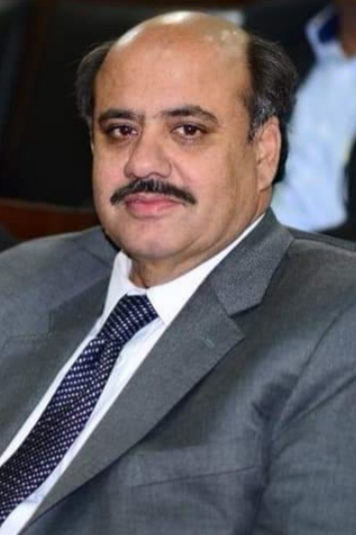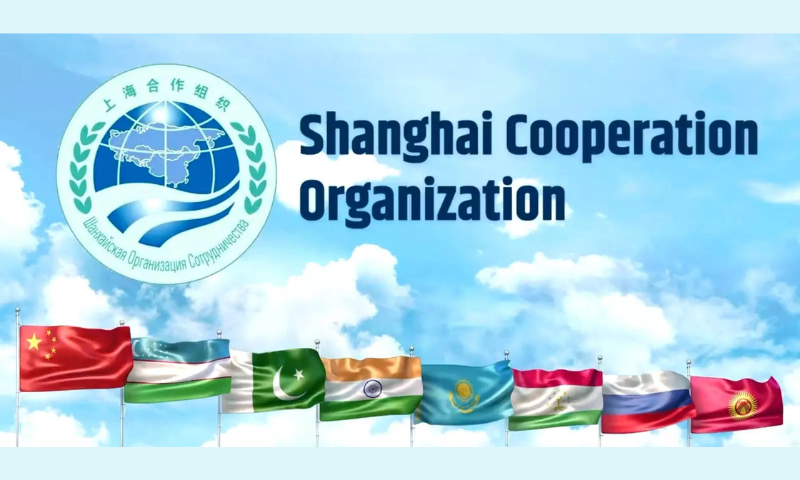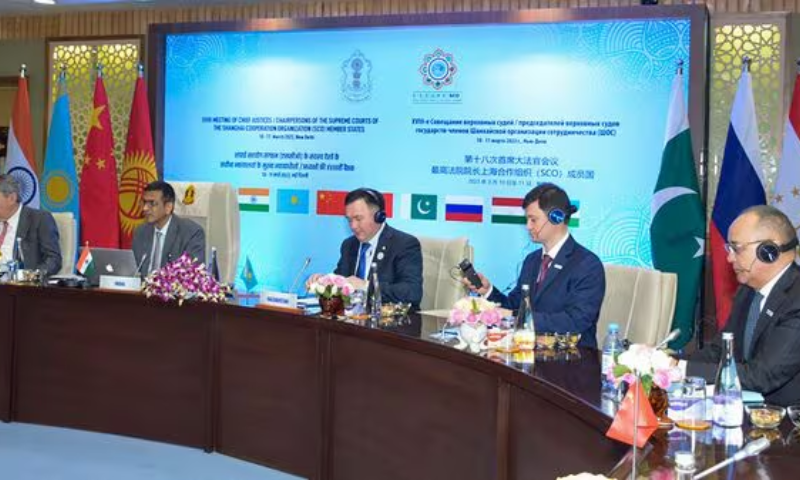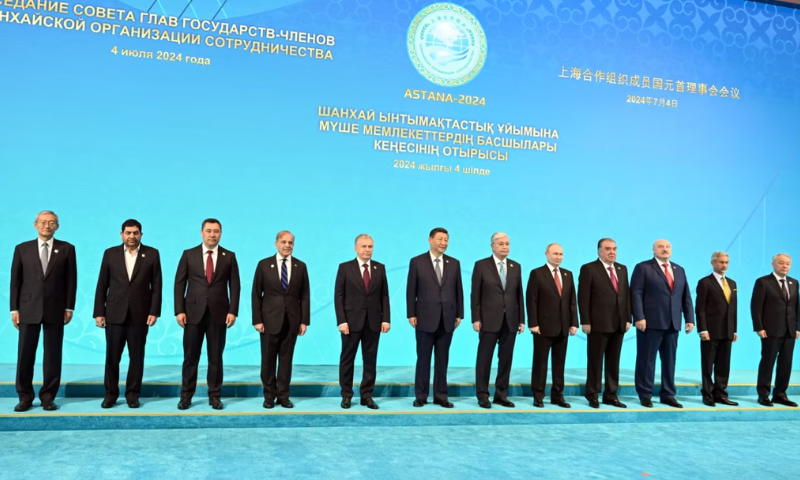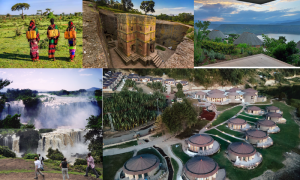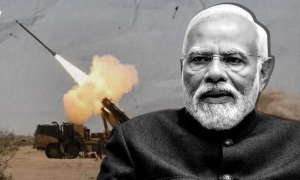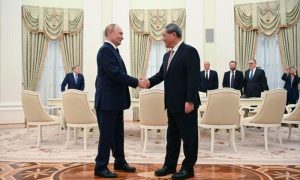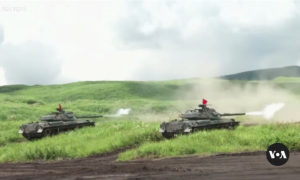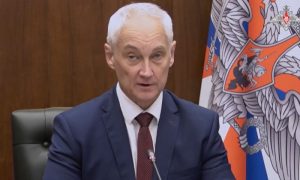Pakistan will host the Shanghai Cooperation Organization (SCO) heads of governments’ two-day meeting on October 15 -16, 2024. It is the current chairman of the SCO Council of Heads of Government (CHG), which is the SCO’s second-highest decision-making forum. Indeed, the forum provides Islamabad with an opportunity to appraise the members about its counterterrorism strategy and the country’s significance for regional economic connectivity.
For years, the SCO focused largely on security issues. However, its members have engaged in an honest and open dialogue to adopt a new security paradigm, create a fair economic environment, and mitigate the repercussions of global warming.
The SCO was established by China and Russia in 2001 with the Central Asian countries Kazakhstan, Kyrgyzstan, Tajikistan, and Uzbekistan, primarily to address three evil forces: terrorism, separatism, and extremism. The “Shanghai Spirit” of mutual trust, mutual benefit, equality, consultation, respect for diverse civilizations, and pursuit of joint development has immensely contributed to the organization’s dynamic development and growth. It has expanded recently to include Pakistan, India, Iran, and Belarus.
The SCO is a multinational organization with ten member states, three observer countries, and 14 dialogue partners. Belarus’s joining during the recent annual Summit expanded and diversified the organization’s geopolitical composition. The SCO seems an important organization to showcase China and Russia’s consensus on reshaping a global order dominated by the United States. Moscow and Beijing see the SCO as a counterweight to US “hegemony” on the world stage.
Pakistan became a full member of SCO in 2017. Terrorism, separatism, and extremism are immensely destabilizing Pakistan’s internal security. Islamabad recently announced Vision Azm-e-Istehkam, which testifies its zero tolerance towards the three evil forces and underscores determined efforts to exterminate them from Pakistan. Notably, an essential feature of the Vision Azm-e-Istehkam is to combat the menace of transnational terrorism through diplomatic means. Without mincing the words, Prime Minister Shahbaz stated that there was “no justification for killing innocent people or using the bogey of terrorism” for political point-scoring. He added that terrorism in all its forms and manifestations, including state terrorism, must be condemned.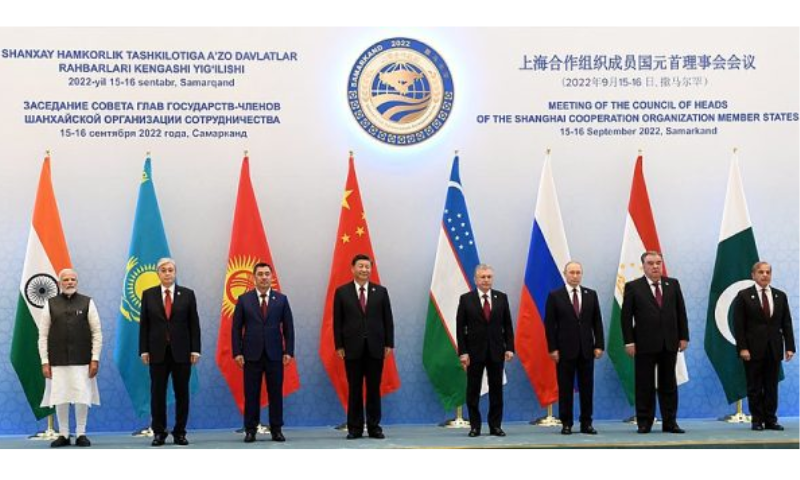 The final communique of the 24th annual SCO summit, held on July 3-4, 2024, in Astana, the capital of Kazakhstan, called for an “early, complete and sustainable ceasefire” in Gaza and a “comprehensive and just settlement of the Palestinian question.” Without referring to Russia’s invasion of Ukraine, it underscored that the organization had “mutual respect for sovereignty, independence and territorial integrity of states.”
The final communique of the 24th annual SCO summit, held on July 3-4, 2024, in Astana, the capital of Kazakhstan, called for an “early, complete and sustainable ceasefire” in Gaza and a “comprehensive and just settlement of the Palestinian question.” Without referring to Russia’s invasion of Ukraine, it underscored that the organization had “mutual respect for sovereignty, independence and territorial integrity of states.”
The SCO allows the members to publicize their concerns regionally and globally. It reveals the increasing acceptability of China’s role in Eurasia. On July 1, a Chinese Foreign Ministry spokesperson opined that “China believes that this [SCO] summit will help build more consensus, open up a new chapter of cooperation, and contribute to the security, stability, development, and prosperity of all countries and to building a community with a shared future for mankind.” President Xi told the Summit, “We should join hands to resist external interference, firmly support each other, take care of each other’s concerns … and firmly control of the future and destiny of our countries and regional peace and development in our own hands.
China is expanding its sway in Central Asia by constructing new rail lines and other infrastructure. It is increasing trade and investment in the region. Indeed, SCO supplements China’s role in the region’s security sphere. On July 9, 2024, President Xi Jinping was greeted by flag-waving Kazakh children singing in Chinese upon his arrival in Astana to participate in the SCO 24th annual Summit. He applauded the China-Kazakhstan friendship, which has “endured for generations.”
Russia has a decisive role in the affairs of the SCO. Though China has expanded its economic influence across Central Asia, Russia strives to maintain the forum’s balance of members in its favor. President Vladimir Putin sees the forum as significant because it demonstrates that Russia still holds regional clout and is not isolated in global geopolitics. Belarus becoming a full member of the SCO would be favorable for the Kremlin.
Russia and China cooperate instead of competing and having shared interests—stable Central Asian regimes. During last week’s Summit, President Xi and President Putin opined that global power centers are changing and a multipolar world is on the horizon. They portrayed the China-Russia relationship as a stabilizing force in chaotic times. President Putin said, “The multipolar world has become a reality.” He added, “The circle of states that stand for a just world order and are ready to resolutely defend their legitimate rights and protect traditional values is expanding. New centers of power and economic growth are strengthening.”
To conclude, SCO is a crucial Eurasian organization. Indeed, its progress contributes constructively to regional stability.









